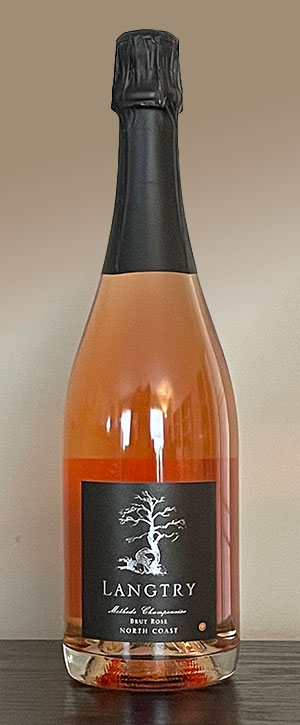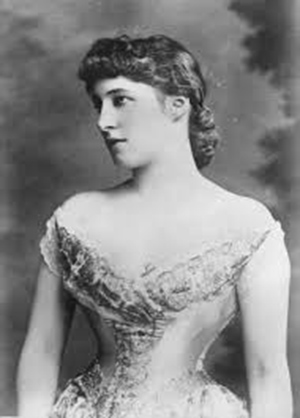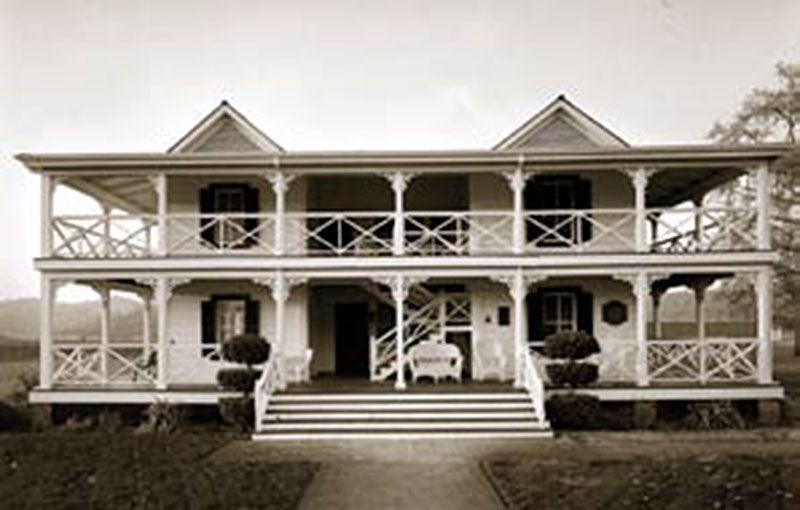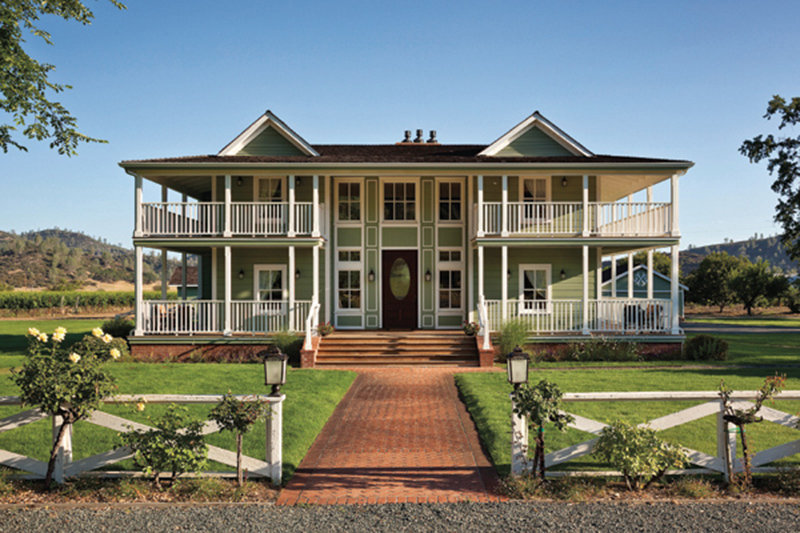
Langtry Brut Rosé
The Guenoc Valley in California is east of San Francisco, and just south of the far eastern edge of the East Bay. Situated in Lake County, grapes were planted there in 1854, and as soon as 1884 it hosted 600 acres under vine. Its fertile fields attracted a number of individuals who dabbled in wine to a greater or lesser extent, including the legendary actress Lillie Langtry.
The 23,000 acre (9,300 ha) Guenoc Valley is a small inland alluvial fan of Arroyo Seco and Conejo loam soils which are isolated from surrounding areas by rocky ridges. Hot days are common in the region and over-ripening is a constant concern. The area also has very cool nights, making it a Climate Region III. The Guenoc Valley AVA was approved in 1981.
Lillie Langtry was born Emilie Charlotte Le Breton in 1853 to William Le Breton, a Church of England minister and his wife, Emilie Davis Martin Le Breton. Lillie was the only daughter in the family of six sons. Her father was a very handsome and cultured man; her mother as beautiful as her daughter would become. They lived on the on the Isle of Jersey, one of the islands that lie in the English Channel .

Empowered at an early age to fulfill her sense of destiny, Langtry would accomplish far more in the world than English Society could possibly imagine when it deemed her, “The Most Beautiful Woman in the World,” not the least for her nearly supernatural figure.
Early in her career as a society beauty, she met a number of amateur and professional actors, who encouraged Langtry’s budding ambition to become a stage actress. It did not take long for her to realize she had met her calling and was determined to fulfill her ambition. She was soon performing in British theaters, not as a member of a company but as the star of the show.
Langtry arrived in the United States for the first time October 23,
1882 at the age of 29. Travelling the United States in her private rail car as a celebrated actress, Langtry discovered the Guenoc Valley in 1888. Although she was still married to Edward Langtry, the only son of a wealthy Belfast shipping company owner, she was romantically involved with Fred Gephard, the only son of a wealthy fur and silk importer. Smitten by the natural beauty of the valley, Langtry paid $82,000 for 4,190 acres, while Gephard purchased 3,800 acres adjacent to her property for only $33,000. The land was called the Guenoc Ranch, one of the last original Mexican land grants, and named after St. Guenoc, a little known Scottish saint. The ranch included a simple farmhouse built by farmer and stockbreeder David Hudson that he called The Homestead.

Langtry and Gephard transformed The Homestead into an opulent estate. Gephard’s acreage housed his horse breeding operation, Guenoc Stock Farm, and Langtry produced wines from her property. The wine business was flourishing in Lake County in the late 1880s, and by the early 1900s Langtry was recognized as one of the region’s most successful producers of fine wines. She claimed her claret was the finest in America.

Eventually Langtry’s partnership with Gephard came to an end, and exasperated with the pile of debts that kept accumulating in connection with the running of Langtry Farms, she sold the estate in 1906. Rumor has it that one of California’s oldest vines continues to grow on the Langtry Estate at the top of Tephra Ridge. It is thought to be part of Langtry’s original vineyard.
The heart of Langtry’s old estate is now home to Guenoc Estate Vineyards and Langtry Estate Vineyards. The property was revived by the Magoon family, which traces back to Hawaiian royalty and Chinese nobility, in the late 1960s and 1970s.
Orville Magoon was by trade a coastal engineer, with a Masters in Civil Engineering. His family’s newly acquired property was initially used as a cattle ranch. However, he soon discovered its wine history, including the fact that the first vineyards were planted as early as 1854. He also uncovered the remains of six small wineries on the property. He immediately planted some 300 acres and set out to extend Lillie Langtry’s dream.
Magoon became friends with emerging winemakers including Dan Duckhorn, Walt Raymond and John Parducci who steered him in the direction of upscale wines. He traveled to Bordeaux and gleaned the basic concepts that were to shape his winery’s growth and direction for the next thirty-plus years.
In 1980, the first wines appeared under the Guenoc Winery label. Less than a year later, a 1200-acre section of Guenoc’s property, officially called Guenoc Valley, was designated as the first officially recognized single-proprietor appellation in the United States.
Magoon was also heavily involved in the development of the Meritage (rhymes with ‘heritage’) movement and worked actively to secure its status within the wine industry. He chose to market his Meritage creations under the Langtry label, in homage to his property’s founder, and was rewarded with incredible success and public acclaim for the Langtry wines.
The winery and the 21,000 acres (8,500 ha) it sits on have been owned by Malulani Investments Ltd., a Hawaiian farming and real estate enterprise, since 1964. However, they did sell 500 choice acres of the estate, with 150 acres of vines, the winery, and several guest houses, including Langtry House, to the powerhouse Foley Family Wines Inc. in 2012.
Langtry Brut Rose
This sparkler is produced by the méthode champenoise [aka méthode traditionelle], where a secondary fermentation occurs in the bottle. It is a beautiful pink-copper color in the glass. Expect a big pop when you open it, even if you’re careful. Unfortunately, that means the fairly coarse mousse quickly dissipates. Even so, there is more fizz than the lingering bubbles would lead you to expect.
The nose shows aromas of cherry and melon. These continue on the palate, adding lime, a hint of watermelon, and bracing acidity. The quite refreshing blend is 69% Pinot Noir and 31% Chardonnay. Langtry claims 12 “barrels” were made, but doesn’t specify the size. ABV is 12%.
Back to blog posts: winervana.com/blog/
